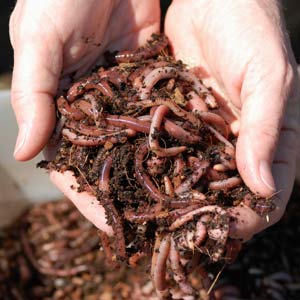So, I've taken the plunge. I've started my first kitchen garden!
 |
| Sadly, no...it'll not be that pretty |
Location:
A few quick considerations:
- I live in a tiny appartment (less than 200 sq. ft.)
- My landlords allow me to utalize their side yard
- The side yard recieves little to no shade
- My current locaiton is by no means pernament
- Limited funds and time
The containers will be mostly to control sturdy and fast growing plants (such as mint and strawberries) as well as beneficial flowers that attract good bugs and birds to help control pests (such as marigolds and wild carrot). Plus, they'll make it easy to bring in plants that wouldn't like the Maryland winters and would come back in the spring (such as my berry bushes).
The raised beds are to make sure that I have good quality soil with good drainage (they help make sure that my thumb more green than brown). Maryland tends to have lots of clay which is too heavy and hard for most plants to enjoy. Plus, it helps me control what goes into my plants (I'm shooting for a 100% organic garden).
Mindset:
Why organic? Because it tastes better. Oh, and it's healthier for me, my sugar gliders, and the environment. Plus, chemical fertilizers and pesticides are pretty pricey in comparison to the natural way:
- companion planting - mixing the types of plants in the same bed to help balance nutrients and protect from pests
- worm composting - adding nutrients to the ground and a great way to 'recycle' kitchen scraps
- attracting birds and beneficial bugs to help control pests (all that's needed are some pretty flowers, a bird feeder, and a bird bath)
And, I'm going to try to take it the next step with biodynamic gardening. Biodynamic gardening works with nature to increase yields by considering the 'farm' as a single living organism. Why is this the next step from organic? Because all that organic really means is the elimination of chemicals.
How did I discover biodynamics? There is a local farm near here that is 100% biodynamic: White Rose Farm of Taneytown, Maryland.
I visited White Rose Farm last fall when I was researching healthier and inexpensive food sources including CSA's (Community Supported Agriculture). The owner gave me a tour of their farm and I was intrigued (especially when I tasted the difference).
Organic foods already taste better to me than the more typical foods. But the food that I tasted at White Rose Farm blew me away. Even their celery had a complex flavor! And talk about delicious radishes!
 |
| A biodynamic farming calendar |
Plus, working with nature just makes more seance to me. Why fight a force much greater than I when I can get greater yields and better tasting food by working with her?
Current Status:
I've started all of my root vegetable seeds and they're sitting on my eastern facing window sill. Less than a week after planted, my beats and radishes have already sprouted along with one of my garlic plants (yay)! Still waiting on the little green heads of my onions, turnips, carrots, and fennel. I've also started a few sugar snap pea plants as they take longer to start than others.
I also have bought all of the seeds I should need for this growing season including various leafy greens (spinach, lettuce, kale, etc), herbs, edible flowers, pretty flowers to attract butterflies and birds, summer vegetables (green beans, zucchini, etc), and fruit (watermelon, berries, tomatoes, etc).
My raised beds are about 1/3rd of the way done (need to continue to level, loosen the base dirt, finish the building, put down a layer of pebbles and shredded coconut husk (for drainage), and some good compost dirt).
I have some compost started from kitchen scraps. I also am going to make a homemade worm compost container where old leaves and kitchen scraps will go.
The Next Steps:
Yes, I will keep you up to date with pictures, how to's, etc.
For now I'm going to continue to monitor my seedlings and plant them into larger containers before transferring them outdoors (this helps extend the growing season and protect the plants when they're at their weakest). I will also continue to research gardening best practices, preserving, and so forth.
 |
| I'm not sure why this is uploading sideways, it looks fine on my computer. Anyway, these are my first sprouts of the season: beets and radishes. |
As soon as I'm able to transfer some of my seedlings to larger pots, I'm going to start other seeds...probably some spinach, kale, tomatoes, and peppers (the last two are considered 'slow' growing plants so I need to get them started earlier in the season before transferring them to the ground in early/mid May (the last frost date for this area is typically the end of April/beginning of May).
Do you have a small kitchen garden? What are some of your favorite things about it? Your greatest challenges?







YAY for organic kitchen gardens! Permaculture is definitely the way to go. I'd highly recommend never using any kind of pest control, even organic as they can also harm the beneficial insects/birds/toads etc. You may lose a few things to pests, but it will help attract beneficials to your garden. After a few years everything will even itself out which then makes for a very low maintenance garden!
ReplyDeleteGood luck!
Def. :D I'm going to shoot to avoid any pestiside, but I'm worried about stink bugs...maybe I'll be able to lay a trap for them (a bottle filled with soapy water & lemon juice).
ReplyDeleteThanks Thiruppathy Raja! I'm glad you liked it. :D
ReplyDelete